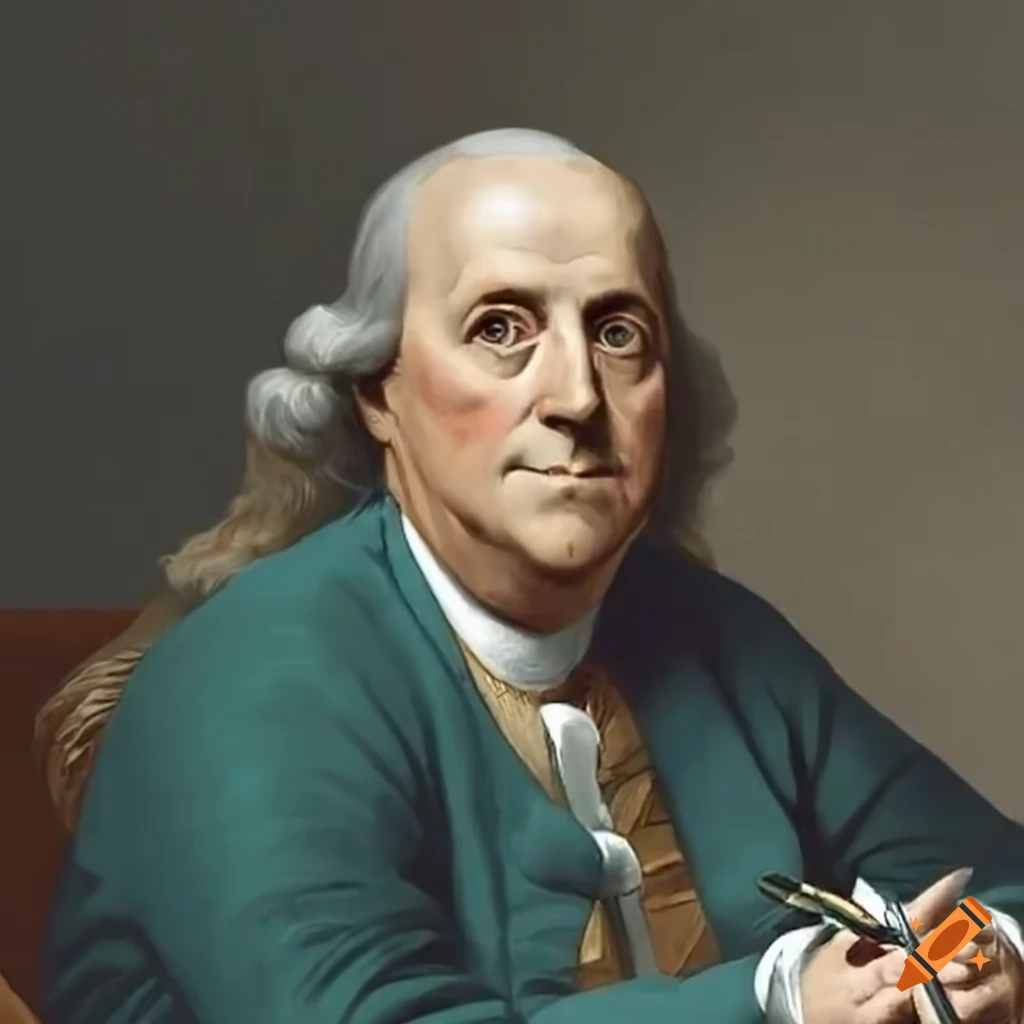
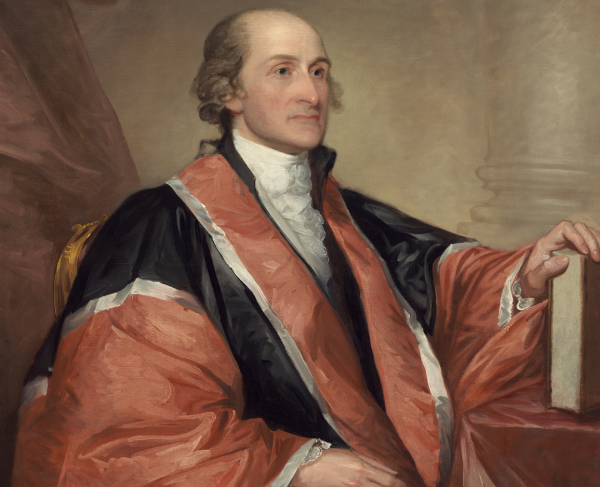

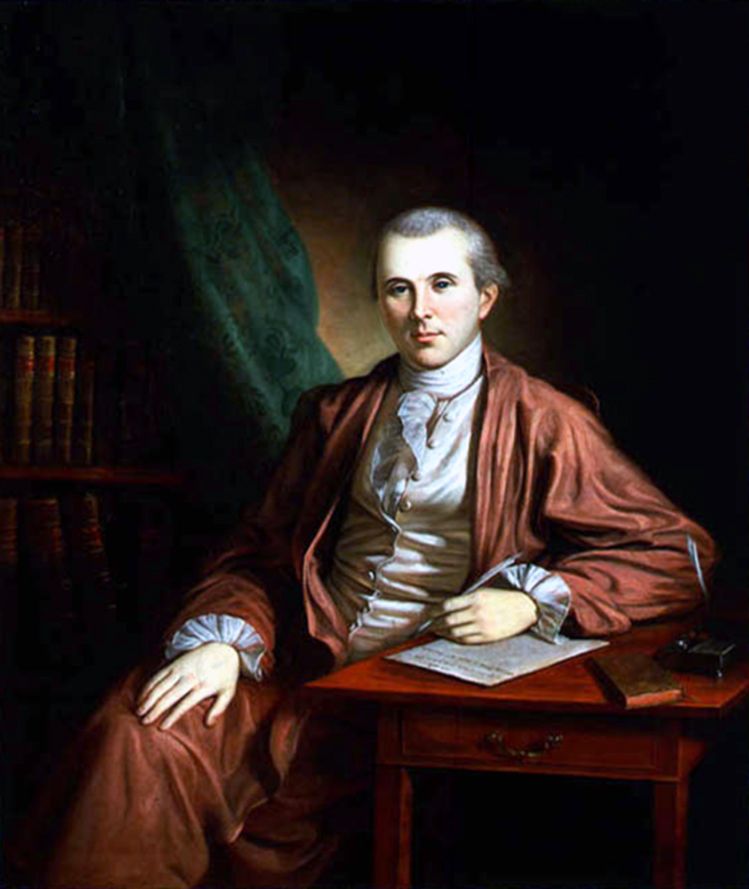
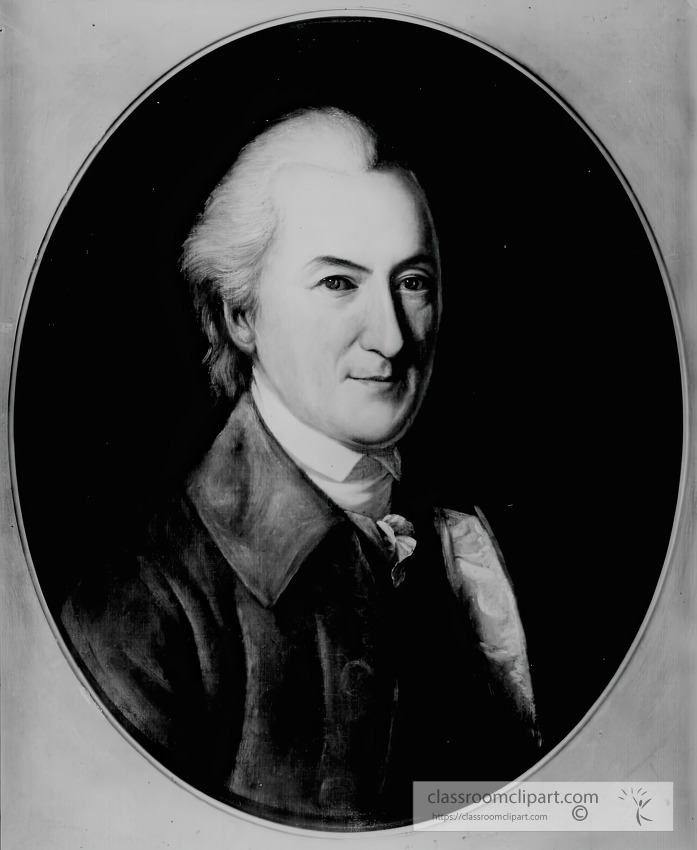
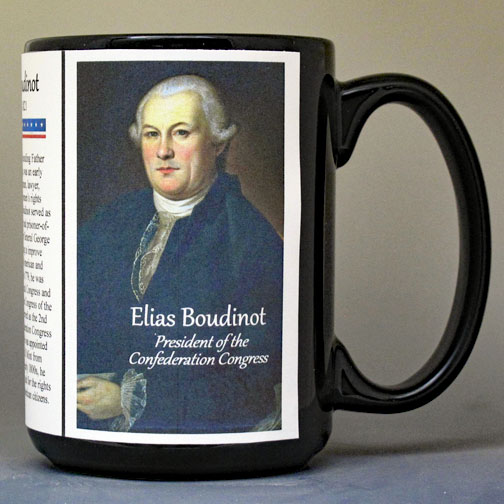
Posted on 08/23/2025 4:28:03 PM PDT by ProgressingAmerica
An interesting thing is happening right now and its really a fantastic opportunity to highlight just how useful our current roster of audio books is in the context of how home schoolers and others can remind our fellow Americans that yes, our Founding Fathers did get it right - and that includes on the topic of slavery, and where can you find the truth? How can you give others the truth? How can we all join together to undermine America's historical class who does not want anybody to know the real American history?
Slavery was indeed bad. Let's get that out of the way, and those four words stand on their own merit. Slavery was indeed bad. Now, we have to ask the opposite. Was early American abolitionism an universal good? I think it was. Was early American abolitionism a thing we can be proud of? Is early American abolitionism a thing we should be proud of? If not, then this discussion is not for you. But if you are proud of America and you are proud of the early American abolitionists, then I'm certain you are going to learn something here. So get ready.
The Smithsonian is something that all of us used to think was something that was on our side. We used to think the Smithsonian had America's best interests at heart. We have come to realize that this cannot be true, not as long as the Smithsonian has a one-sided vision for telling the U.S.'s story. If the narrative is really going to be one sided, then the Smithsonian have cast themselves as propagandists.
So who were America's Abolitionist Founding Fathers? Well, they were Founding Fathers to be sure. Signers of the Declaration, signers of the Continental Association, members of the Continental Congress, and signers of other documents less well known and also the Articles of Confederation and Constitution itself. This is also by no means meant to be an exhaustive and all encompassing list covering every aspect and nook and cranny, I did not prepare for that in advance.
The Founding Father who everybody will recognize, who was also an ardent abolitionist, was Benjamin Franklin. Franklin is often times most remembered for Poor Richard's Almanack, also for the key and the kite in the lightning storm. But Franklin was also a great man in another way - his ardent belief in the necessity of abolitionism.
A quick point of contention before I continue. For some odd reasons, many conservatives are decidedly not proud of this. I must say, I cannot fathom why. You aren't ceding any ground to progressives by promoting the Abolitionist Founding Fathers. In fact, the opposite is actually true. The progressives have spent generations engaging in a mass coverup of U.S. history and a sweeping under the rug of all things positive about U.S. history.
The Abolitionist Founding Fathers? Yes, of course I found it under the rug. I pulled it out from under the rug and now I want people to see how beautiful it is. Look at how it shines! Look at how it sparkles! I just find it odd that some claimaints of America First suddenly forget to be First with this specific topic. You really need to question your motives.
Now, was Benjamin Franklin the only abolitionist among the people who Founded the United States? Of course not! But surely I must be now be about to be forced into Founders that history forgot because they did one thing and nobody ever heard from them again.
Nope. I was thinking John Jay, who not only was an abolitionist but taught his son William to be an abolitionist. John Jay was one of the authors of the Federalist Papers. That's right, one of the authors of The Federalist was an opponent of the institution of slavery. Bet your history teachers didn't teach you that one did they! Mine didn't. And why would teachers teach this, they're engaged in a mass coverup about the topic. Jay was a towering figure at America's founding. Besides helping with the Federalist Papers and being a governor of the important state of New York, he negotiated the end of the Revolutionary War with the 1783 Treaty of Paris and followed it up later with the Jay Treaty in 84, bringing a decade of peace to the U.S. between Britain.
That's now two, and these are big names - two Abolitionist Founding Fathers.
Now ask yourself this question. How come the Smithsonian Institute is incapable of figuring this out? How come the Smithsonian is incapable of discovering this? Well, they aren't incapable. Their ATTITUDE prevents them. Their STINKING ATTITUDE, the Smithsonian's ARROGANCE, that is what keeps the Smithsonian from teaching people of how integral abolitionism of slavery was at the very beginning of the U.S.'s journey. And yes, it was integral. It wasn't nearly the top priority, but anybody who says slavery abolitionism was non-existent is flat out lying when we can all see the documentation, see the dates of when those documents were written, and see that it is true. And in good enough time, it'll be audio as well. I'm just sorry I can't work faster.
Now, I have yet to work on the creation of an audio book for John Jay, but I will some day, and about Franklin there are several audio books at LibriVox to help make educating about his life easier.
Let's move on. Let's talk for a moment about Stephen Hopkins, who today is entirely forgotten but in the 1770s was very well known as a pamphlet writer until he (like many others) were eclipsed by the explosive popularity of Paine's Common Sense. We often hear about how so many of the Founders were pamphleteers, and even teachers will teach this without specifics. Ask yourself, why is it we never hear specifically about what exactly were those pamphlets? Was was in those pamplhets? Who were the other pampleteers? Was there 3 others, was there 3,000? Who? Where? Well, Hopkins was one of them and his pamphlet, "The Rights of Colonies Examined", was resoundingly popular. Hopkins went on to eventually sign the Declaration of Independence and was Governor of Rhode Island.
The real key to Hopkins importance though (in today's context) is his opposition to slavery. He authored one of the first of its kind laws in the colonies (at this point the U.S. did not exist) in the year 1774, and the law completely did away with the slave trade. And, and, the law was passed through the legislature. So all of Rhode Island was onboard with the concept. But in the colonies, Governors were crown creatures instead of being elected. They were puppets. Their real job was to thwart colonial freedom and enforce kingly desires. And this crown's puppet refused to enforce the law. So even in spite of being a law duly passed by the people's representatives to abolish the slave trade, the crown still killed it. Rhode Island kept going in slave trading into the 1800s, entirely in line with the crown's wishes. Not the patriots' wishes, the crown. The crown owns this, without any distinction at all.
Now, this episode is one instance of where I come in as you just saw and I say the most incindiary thing (and fact-based thing BTW) that the British Empire forced slavery on the U.S. And its true. The British Empire forced slavery on the U.S. Hopkins' work is one example of this. Those 13 colonies saw this again and again, laws either being ignored or outright vetoed by the King's pen, so none dared go any further. Why bother passing dead laws? That is so clearly a waste of time. But had the colonies had the freedom and independence to pass their own laws without crown creatures being jerks and without the threat of a kingly veto, it is a very real assertion to say that at least one or a few of the colonies would have become free-soil by the time Independence Day appeared. The reverse is also true. Nobody can state that the U.S. chose slavery. Even those most critical of the Founding Fathers only dare go so far as to say that slavery was a "tolerated" institution by the Founders. And in using this word "tolerate", they do in fact expose their deception. The emperor once again has no clothes.
Benjamin Rush, another signer of the Declaration of Independence, was a very busy man. On top of being a physician he having his finger on the pulse of patriotic endeavors, and was also an abolitionist. In his work as an abolitionist, Benjamin Rush wrote a pamphlet titled "An Address to the Inhabitants of British America". But this pamphlet was not just a free-standing work, it was written with a specific agenda. Benjamin Rush worked together with prominent abolitionist Anthony Benezet on this project. Historian Maurice Jackson pointed out that Benezet and Rush worked together using this pamphlet to put pressure on the Pennsylvania legislature to pass a law putting heavy tariffs on the importation of slaves in order to hopefully put a stop to it. (Let This Voice Be Heard, pp. 122-123)
This sort of pressure campaign between Benezet and Rush, specifically in the context of colonial slavery of black Africans, was unheard of anywhere in the world and was the first of its kind. This kind of pressure campaign using pamphlets and later images, paintings and where available photographs, would be copied by British abolitionists and even later American abolitionists during the era of the Civil War. Benjamin Rush, a Founding Father, and Anthony Benezet are the source of all of it. That's why Jackson calls Benezet the "Father of Atlantic Abolitionism", its because Britain did not invent this.
Abolitionism was wholly invented and created right here in the United States(colonies). British abolitionists copied us. We did that. We own it. And we deserve the credit for it. Now, let's cover briefly Rush's actual pamphlet. What was written in it? Among other things, Rush wrote:
The first step to be taken to put a stop to slavery in this country, is to leave off importing slaves. For this purpose let our assemblies unite in petitioning the king and parliament to dissolve the African company. It is by this incorporated band of robbers that the trade has been chiefly carried on to America. (p.21)
Rush does not mince words here. Who does Rush blame for slavery in American colonies? Britain. How can slavery in the colonies be stopped? Petition Parliament. Who created slavery in American colonies? The British Empire did that. It wasn't the United States who did that, a simple calendar proves that. It wasn't some random tribal lords in Africa who did that, they never set foot outside of Africa. And Rush also links together clearly that slavery is the slave trade, and the slave trade is slavery. The two are one in the same. Stopping one (they believed at the time) is how to stop the other. If you want to say the abolitionists got the idea incorrect looking backwards hey that's great. They got it wrong. But let's be sober, let's not get drunk off of modern propaganda that somehow the slave trade and slavery are different. They are not. The abolitionists all viewed the two as exactly the same and it was this way with the British abolitionists as well.
Now, if you so choose you can listen to an audio book of Rush's auto biography here. The lives of all of the Founding Fathers is so important for all of us to continually learn, study, and reflect on. Let's continue`.
John Dickinson, again one of the signers of the Declaration and also one of the largest slave owners in his colony/state at the time. Another wildly popular pamphleteer writing "Letters from a Farmer in Pennsylvania", perhaps the only other pamphlet from the time(besides Common Sense) that Americans remain somewhat knowledgable about its existence. Dickinson became an abolitionist in connection with his Quakerism similar to Anthony Benezet, and would manumit every last one of his slaves along with becoming a vocal advocate for laws abolishing both slavery and the slave trade. We currently have an audio book in production about the life of Dickinson and hopefully some day soon I can happily tell everybody about the completion of that work and its contents. And, most importantly, Dickinson's very important life and the lessons we can learn from him. That is the goal. Continuing education about our wonderful Founding Fathers.
Elias Boudinot, not a signer of the Declaration but he was a President of the Continental Congress, also took up the banner of opposition to slavery, He joined the Pennsylvania Anti Slavery Society (which Franklin was one-time President of) and in addition to work in abolitionist causes he was a founder of the American Bible Society. Like so many of our Founders, the life of Elias Boudinot has been completely eradicated and for that, I do have an audio book of his Life and Times in the works but it will be complete when it is complete.
So there you have it, six prominent Founding Fathers who were both well known in their day, as well as being definitively involved with abolitionist movements during the times of the birth of the United States either right before it or shortly after its establishment.
Do you want to sabotage progressivism? Talk about America's Abolitionist Founding Fathers. They are one in the same: talking about the abolitionist Founding Fathers is sabotaging progressivism. I, definitely, make it a point to at all places and all times frustrate progressivism by runing their hard work over this last century, so I will obviously have more to say about America's Abolitionist Founding Fathers. Especially as I can get more audio books introduced about their life and works to supercharge the educational capabilities about the wondrous and fantastic Founding of the United States of America.
Now. Who couldn't possibly be proud of all this?
Note: Outside of visible abolitionism there were many Founders who were ardently anti-slavery even if they did not act on it. Additionally, there were some who did own many slaves while being against slavery as a concept and institution. Among those known to oppose slavery would be George Mason, Roger Sherman, Henry Laurens, Gouverneur Morris, both of the Adams', John and Samuel, and most controversially Thomas Jefferson among others; Jefferson acted repeatedly legislatively to actually get rid of slavery making him truly unique in any of the relating categories. And even more Founders were privately against slavery but properly put union above all objects, the two most prominent names being George Washington and Patrick Henry.
As a final thought, I leave you with two very well documented works on early abolitionism and in relation to the Founding Fathers, and the life of Anthony Benezet.(both text and audio)
Memoirs of the Life of Anthony Benezet






“Slavery was indeed bad”. What’s with the “was”? There are more slaves in Africa and Asia today than at any point in world history. Do the people screaming about slavery 200 years ago in the U.S. even care? No. They don’t care.
Smithsonian is something that all of us used to think was something that was on our side
/
I have NEVER thought that of those snotty reprobate darwinist cultists.
It is entirely possible to have a compartmentalized discussion.
Thank you.
Does the Smithsonian ever mention that? Do any of the drone brain dead leftists at the Smithsonian even know that. I doubt it. They only know what their leftist professors told them.
The Ones who kept all their slaves? Perhaps the ones that deliberately wrote slavery into the US Constitution? (Article IV, Section 2)
I don't think you are coping well with history that won't bend to what you wish it to be.
Benjamin Franklin was a slaveowner most of his life. Near the end he became outspoken opponent of slavery even publishing articles against the practice.
They can't milk it for money and power, so it really doesn't matter to them.
Slavery never mattered to the elites in this country other than it's value as a path to power.
What law did Massachusetts pass to end slavery?
My recollection is that liberal biased judges deliberately twisted some words in the newly created Massachusetts constitution to declare it abolished slavery, but this was just blatant lying.
Activist courts ended slavery in Massachusetts. Nobody passed any laws to do it.
And of course, the Massachusetts slave owners simply took them out of state and sold them.
Lots of fanfare for their activism, but didn't really do much for their declared cause.
“Pennsylvania and Massachusetts passed laws to end slavery in their states in 1780… before the revolution was over, 9 years before the Constitution went into effect, and over 50 years before the British outlawed it.”
Of the 13 original slave states, 13 of them voted to enshrine slavery into the United States Constitution in 1787. This includes Pennsylvania and Massachusetts.
In fairness, probably the only reason Pennsylvania and Massachusetts went along with giving slavery legal status in the Constitution was because it was in their own economic and political best self interest.
What is it with you two, anyways?
Are you incapable of separating anything away from the Civil War? Is it really that difficult? It should be utterly simple to say “the Civil War and all of that” (pointing in one direction) that’s over there.
“The Revolution and the Founders” (pointing in the opposite direction) that’s over here.
How come you aren’t capable of doing this?
I think the Quakers styled Pennsylvania’s 50 year phase out of slavery “philanthophy at bargain rates.”
The Smithonian has been corrupt and political for over 100 years. Decades after the Wright Brothers’ successes, they continued to give credit to Samuel Langley as almost a co-inventor of flight. He weaseled about $100,000 dollars from the Smithonian and the War Department to support his deveopment of his machine “Aerodrome” in the late 1890’s.
Although it crashed spectacularly several times, the Smithonian would not admit the Wrights were the first. I don’t think the Wrights even let the Institution have their plane for display until the 1930’s AND they insisted on proper recognition. Reluctantly, the Smithonian agreed.
BTW, my Indian friends say the Smithonian related National Museum of the American Indian is just as bad.
The reason I connect General Light-Horse Harry Lee with his son General Robert E. Lee is because I don't live in a vacuum.
Why are you incapable of saying in broad terms that the civil war is over there and the american revolution is over here, with their obvious and unmistakable distinctions?
“Why are you incapable of saying in broad terms that the civil war is over there and the american revolution is over here, with their obvious and unmistakable distinctions?”
Because of the principles in the Declaration of Independence and the United States Constitution.
The South left the Union and took the Constitution with them.
The founders were heming in slavery. It was dying before the Cotton Gin.
I bet some were absolutely doing that. And I bet some were absolutely not doing that.
And I bet some northern businessmen figured their states couldn't grow cotton and therefore did not need black workers living in their states.
And further I bet some northern businessmen figured without owning slaves they could still make money transporting slaves on their ships; and transporting slave-grown cotton on their ships; and insuring slave cargoes; and lending money to finance slave-based trade; and buying slave-grown cotton to manufacture goods to be sold for a profit; and imposing confiscatory taxation on slave-produced wealth being repatriated as imports by the cotton states.
One of the “Won Cause Myths” postwar was that the north “fought to free the slaves.”
Let’s read what Frederick Douglass had to say:
“In his 1860 speech “The Constitution of the United States: is it pro-slavery or anti-slavery?”, Frederick Douglass cites the Notes of Debates in the Federal Convention of 1787 left behind by James Madison in order to describe four provisions of the Constitution that are said to be pro-slavery. In examining the history of how the clauses were debated and structured, he argues either that they are not pro-slavery or that they do not concern slavery.
He argues that the Three-Fifths Clause (Article I, section 2) “deprives [slave] States of two-fifths of their natural basis of representation”; that the Migration or Importation Clause (Article I, section 9) allowed Congress to end the importation of slaves from Africa in 1808; that the Fugitive Slave Clause (Article IV, section 2) does not apply to slaves but rather to “Person[s] held to Service or Labour”, which do not include slaves, because a slave “is a simple article of property. He does not owe and cannot owe service. He cannot even make a contract”; and that the clause giving Congress the power to “suppress Insurrections” (Article I, section 8) gives Congress the power to end slavery “[i]f it should turn out that slavery is a source of insurrection, [and] that there is no security from insurrection while slavery lasts....”
Disclaimer: Opinions posted on Free Republic are those of the individual posters and do not necessarily represent the opinion of Free Republic or its management. All materials posted herein are protected by copyright law and the exemption for fair use of copyrighted works.